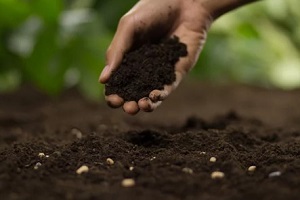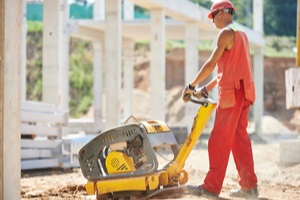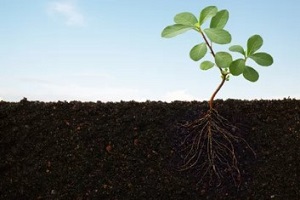 Soil is one the biggest determinants of the success of any gardening project, directly impacting how well your plants absorb needed nutrients, stay in place, and take in the water they need while avoiding the collection of excess water.
Soil is one the biggest determinants of the success of any gardening project, directly impacting how well your plants absorb needed nutrients, stay in place, and take in the water they need while avoiding the collection of excess water.
What happens when your soil falls short in any of these aspects? Custom soil is a great way to ensure you are beginning your project with soil that has the right composition, nutrients and pH for the task at hand.
Whether you are looking to purchase custom soil or you wish to mix your own for a specific gardening purpose, there are a lot of factors to consider. Many garden and dirt suppliers can create custom blends that are suitable for your gardening goals, and some gardeners purchase multiple soil types from a supplier and blend their own. Peat moss, perlite, compost, vermiculite and other ingredients can be blended into soil to improve its pH or nutrient balance.
Here is a look at some of the qualities you need to pay attention to when buying or creating a custom soil or testing your soil to determine its suitability for gardening.
Nutrients
A good soil mix should contain the nutrients needed for optimal plant growth. Essential macronutrients for plants include potassium, phosphorus and nitrogen, while the micronutrients you should look out for include zinc, manganese, chlorine, molybdenum, copper, calcium, iron and boron. Soil only needs micronutrients in smaller amounts. Both types of nutrients can be added to soil via compost or artificial additives.
Soil Type
The type of soil you use will influence the amount of air that is available to the plant, the soil density, and how quickly it can drain water. Most of the plants in a typical garden grow best in well-draining soil, but if you are looking to grow a specific plant, research the precise type of soil it prefers before proceeding.
In your research, you will likely encounter references to sandy, loamy and clay soils. While clay soils are dense and thick and tend to drain slower, sandy soils are light and thin and boast quick-draining properties. A happy medium for most purposes is loamy soil, which is thick without being too dense, drains well and is rich in nutrients.
Compaction
 Your custom soil should not be too compacted as this can restrict the movement of water and air and impact nutrient availability. Moreover, soil that is overly compacted prevents beneficial organisms such as earthworms from moving around freely and helping the plant thrive.
Your custom soil should not be too compacted as this can restrict the movement of water and air and impact nutrient availability. Moreover, soil that is overly compacted prevents beneficial organisms such as earthworms from moving around freely and helping the plant thrive.
Although there are scientific ways to determine the exact compaction of soil, you can perform an easy test for home gardening purposes by sticking a wire into your soil and marking the depth at which the wire bends. You should seek a custom soil that the wire can penetrate at least one foot before it starts to bend.
Soil Structure
The rounder aggregates found in rich organic soil enable air and water to move around the roots of the plant more easily. Healthy soil should contain differently sized aggregates or chunks that hold their shape when they are subjected to light pressure.
You can test this by digging a hole 6 to 10 inches deep in damp soil and removing an intact section of it that is roughly the shape and size of a can of soup. Then, break it apart gently with your hands. If the aggregates in the soil are hard to break apart with your hands, you are dealing with hard soil.
Water Infiltration
Another test you can perform on custom soil to determine whether it is suitable is the water infiltration test, which measures the process through which water reaches the roots of the plant.
To check this, remove the bottom of a coffee can and push it down in the soil, leaving around three inches of the coffee can above ground level. Then, fill the visible portion of your coffee can with water and mark the water’s height. Using a timer, measure how long it takes for the soil to absorb all of the water.
You will need to repeat this several times until you observe the absorption rates slowing and a consistent time to absorption. Once you have reached that level, if you find that the rate is slower than half to one inch an hour, your soil could be too compacted to provide optimal conditions for growth.
In addition to helping water reach your plants’ roots, good water infiltration can help avoid common problems such as runoff and erosion while enhancing aeration.
Proper Root Development
 You can assess the root systems of your plants to determine the health of your soil. Plant a quick-growing plant in the soil and then dig it up to root depth. Pull up the plant and check out its root development.
You can assess the root systems of your plants to determine the health of your soil. Plant a quick-growing plant in the soil and then dig it up to root depth. Pull up the plant and check out its root development.
If you see brown, mushy roots, the soil likely has drainage issues and will need to be amended. If its roots are white and contain fine strands, this is an indication of healthy soil. If the roots look short or stunted, the soil could contain root-eating pests.
Workability
It is also useful to assess the workability of your custom soil. If you find that it is difficult to work or till your custom soil and it forms clods easily, it has low workability. This makes it more likely to compact and can impede the circulation of nutrients and water that your plants need to grow and survive.
Discuss Your Soil Requirements With the Professionals at Dirt Connections
If you are looking for high-quality custom soil to set your gardening project up for success, reach out to the soil professionals at Dirt Connections today. Our team will ensure that your custom mix meets your requirements, and we offer dirt delivery services throughout the Northern Virginia area. From screened and unscreened fill dirt and organic topsoil to bio mix soils, we offer a comprehensive range of materials to support yardwork and gardening projects of all sizes.
Summary

Dirt Connections was started with one goal in mind: providing quality residential and commercial construction services to clients on time and on budget. Reach out for more information on how we can support your next project.
For your convenience our estimates are free and by appointment. Call 703-940-9949 for a free estimate today!









































